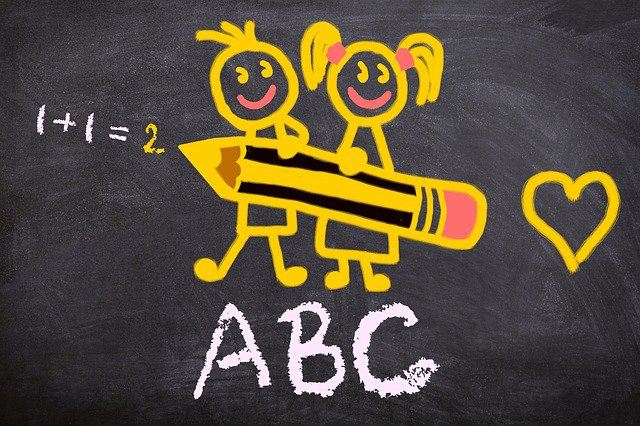Home
Welcome to the Lincolnshire Learning Lab!

This is a research group set up to improve the learning of all children and the working environments for teachers within Lincolnshire. The research group is keen to work and involve anyone keen to carry out research in their schools or education settings. If you are a teacher from a primary, secondary, specialist provision or alternative education, an academic or professional involved / interested in the education system then please do get in touch!
-
ASCENTS 1-2-1
ASCENTS 1-2-1 support for science– Undergraduates mentoring Year 11 pupil premium students in UK secondary schools. Rachael Sharpe at the University of Lincoln was involved as a Co-Investigator with Abrahams, I, Inglis, M., Vaughan, H., Reiss, M. and Dunlop, L. This was funded for £615,000.00 by Educational Endowment Foundation (EEF) from 1st January 2019 to 31st July 2020 and evaluated by NatCen. More details can be found here.
-
THE ASSESSMENT COMPANION FOR THINKING SKILLS (ACTS)
The aim of this project was to develop, trial, and disseminate a suite of diagnostic and formative assessment tools to be used by classroom teachers for the assessment of progress in pupils’ thinking. This innovative approach has developed new learning tools, learning and teaching methodologies, and pedagogical approaches that support pupils’ thinking. The aim is that these resources will improve the education of pupils and the training of pre-service and in-service teachers. More details can be found here
-
Teachers’ views on recognising and using home languages in predominantly monolingual primary schools
The use of home languages has previously been advocated in highly multilingual UK classrooms. However, drawing on the home languages and cultural insight of children who use English as an Additional Language (EAL) may also have important social and academic benefits in contexts where monolingualism is the norm.
To view more, click here
-
An investigation into the teaching of numeracy in subjects other than Mathematics across the curriculum.
Ireland’s government placed a renewed focus on the teaching and learning of numeracy with the publication of a national strategy in 2011. Whole-school planning for numeracy was already a requirement for disadvantaged schools also known as Delivering Equality of Opportunity in Schools (DEIS) in Ireland. This single site case study explored how a disadvantaged school was teaching numeracy across the curriculum. It was discovered that teachers were unclear about the difference between numeracy and mathematics. Teachers’ life experiences of mathematics shaped their views towards numeracy. Leadership played a role in shaping teachers’ views of the importance of numeracy. Whilst all teachers could see the relevance of teaching numeracy in their subject area, the majority were unaware of what the school improvement plan for numeracy contained. The findings suggest the need for teachers to understand the concept of numeracy, the need for professional development to address this, in addition to developing teachers’ identities and pedagogical practices in this area. Schools need to consider how leadership can put support in place to enable teacher learning. Policymakers need to consider, and distinguish between mathematics and numeracy, and support schools’ engagement with cross disciplinary, interdisciplinary and transdisciplinary approaches to embedding numeracy across the curriculum.
-
From the known to the unknown: the role of spontaneous and self-generated analogies in students’ predictions about novel situations
The use of analogies as reasoning tools that play a key role in human cognition at all ages has been of interest to educators, scientists, and philosophers ever since Aristotle. Indeed, research has consistently found that analogies provided by teachers can, and do, play an important role in facilitating student understanding of scientific ideas. Despite the effectiveness of teacher provided analogies little research has been undertaken on the use, and effectiveness, of student self-generated analogies in helping them to understand novel situations.
-
Research-2-Practice
Research-2-Practice is a Wellcome Trust funded research project that is a collaboration between the University of Lincoln, Roehampton University, York St John University and Kyra Research School. The project works with, and is guided by, expert teachers to develop packages of evidence-informed science teaching materials for use with both primary and secondary school mentors and trainee teachers. Instead of imposing change on classroom practitioners, it capitalises on the existing teacher training mentor/trainee professional relationship and adopts a tried and tested model of instructional coaching that will support trainee teachers in becoming evidence-informed science teachers. The project is nearing completion (autumn 2021) and the resources will then be made freely available online. Please get in touch with us at https://learninglab.blogs.lincoln.ac.uk/contact-us/ if you are interested in receiving updates about the project.
-
Lincolnshire Learning Lab Introduces: Active Online Reading
On: Wednesday 6th April 2022
Time: 3:30pm to 5pm
Learn more about how students read online, what they think about how we teach them to do so, and how their online reading habits relate to their transition to study at university.
At all levels of education, reading is ubiquitous – it is relevant for all disciplines and all students.. Students’ reading practices have transformed over the past 20 years, with the increasing digitisation of resources, the emergence and then ubiquity of virtual learning environments, and the widespread use of mobile technologies. The pandemic has accelerated such developments, with the rapid roll-out of online and blended learning. Yet we know strikingly little about how students read online, how this relates to their overall learning, and which pedagogic strategies are effective.
Since 2021, colleagues from the University of Lincoln, the University of Nottingham, UCL, and Talis Education have been running a project that explores ‘active online reading’. This project explored digital reading practices and pedagogies across institutions, addressing students' collaborative and independent reading activities. As part of the project, we ran surveys of staff and students that explored their digital reading practices and pedagogies in Higher Education, gaining over 700 responses.
Online reading is fundamental to the transition to higher-level study (learning new ways of reading, ‘unlearning’ old habits) and to disciplinarily (reading in a particular subject). In this session, we will introduce the project, before outlining our findings in relation to the reading practices and experiences of first year students, with a particular focus on the issue of transition to disciplinary study in higher education. We will then move on to outline what our research suggests are particularly effective strategies for teaching students to read actively in online and offline contexts.
Plan
- Introduction to the Active Online Reading project
- Survey results: transition and disciplinarity
- Pedagogy: what works (and what doesn't)
Biography
Jamie Wood is Professor of History and Education in the School of History and Heritage at the University of Lincoln. He has been working on pedagogic development projects in HE History for over 15 years, with a particular focus on technology-enhanced and active learning. This work has been funded by the Higher Education Academy, the Quality Assurance Agency and others. In 2014, he a held visiting a visiting fellowship at the Johannes Gutenberg University Mainz, where he led a project on the use of technology to teach 'text-based' disciplines in HE. In 2021 he won the Royal Historical Society's Teaching Innovation prize for his ongoing work on online reading.
